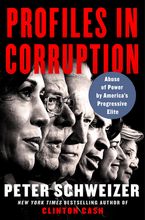Hunter Biden’s self-enrichment in Ukraine, far from being a “conspiracy theory” or “discredited allegation,” is, in fact, textbook corruption.
Biden was making money from a shady Ukrainian natural gas company, and his father was pressuring the Ukrainians to fire the prosecutor looking into it. The sleight of hand dismissal from the Bidens’ defenders arises because they have demanded a higher burden of proof to show wrongdoing here than we do in other contexts.
The proper evidence is not a “quid pro quo” or an admission of wrongful intent, but a violation of fiduciary duty.
In business partnerships, boards of directors, and other positions of trust, people are expected to treat those whom they are serving as well as they would treat themselves. They are to disclose any conflicts and recuse themselves from decisions when those conflicts exist. When other considerations arise—helping oneself, helping a family member, or trying to serve the interests of two opposing entities—we assume that wrongdoing is afoot.
. . .
Because of difficulties with proof and the possibility of “wink and a nod” conspiracies, the law uses common sense and asks “Who benefits?” to determine wrongdoing when transactions benefiting insiders are involved. The same principles apply to self-dealing by corporate officers and insider trading.
If there is not already a law against the Biden family’s self-dealing, there should be. It isn’t unique, and the fact that it’s met with a shrug by many of our lawmakers suggests a much bigger problem in their attitude about public service. We are not a banana republic. Public service is not there for people to get rich indirectly by shepherding money, contracts, access, and the like to family members, whether domestically, in Ukraine, or anywhere else.
# # #










